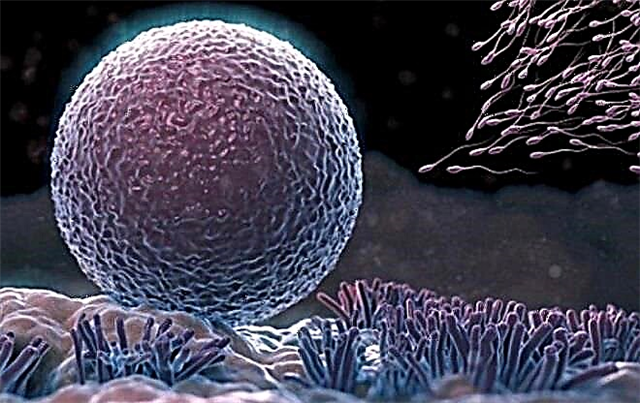There are many cases when a child constantly asks for a breast. Some babies so require increased attention to themselves, others - it is needed to relieve tension in the nervous system. In 90% of cases, this reflex is a way to protect against the unknown, since the baby feels mother's warmth.

A joyful smile indicates good health.
It is believed that a baby only needs breast at a time when he is hungry. Modern experts, doctors and child psychologists have found that there are many reasons for this behavior. If the child constantly requires breastfeeding, it is recommended to pay attention to his health. Sometimes this behavior indicates a problem (the beginning of teething, abdominal pain and colic).
Reasons for need
The frequent requirement may be due to various factors. It should be borne in mind that the desire to be closer to mom is conditioned by a number of reasons: from ordinary contact to the need for protection.
Not enough milk
In some cases, the baby often asks for breast milk because it is not getting enough. Food is quickly digested, the feeling of satiety does not arise. The baby's reaction will be to ask for another breast. The main problem may not be a lack of milk, but improper attachment. As a result, the newborn receives less milk and remains partially hungry.
Growth jumps
Another reason is growth leaps. During these periods, the baby needs an increased amount of milk. Additionally, there is a need for intimacy with the mother, her attention and care. You need to constantly monitor how the baby behaves, since at the time of growth jumps, the need for nutrition (breast milk) increases. There are physiological and psychological overloads, which can also be eliminated by sucking.
Sedative
At an early age, a child may start to freak out. This is due to insufficiently developed functions of the nervous system, inability to control their own emotions. Overload occurs when poor sleep has occurred. In order to reduce the need for sucking, it is recommended:
- establish natural feeding;
- adjust the correct grip of the nipple and areola;
- choose a comfortable position for yourself and your baby.
It is better to feed on demand, without missing the night attachments. So you can achieve a balance between the peace of the baby, his satiety and increase milk production.
Important! Mom's breast acts as the best soothing for the baby at such moments.
The need for contact with the mother
If the child constantly asks for breast, then one of the reasons may be the need for contact with the mother. It is caused by developmental features, discomfort, pain. In any case, closeness to the mother's body allows the newborn to feel safe. Similar manifestations are observed, for example, when the tummy hurts badly (colic).
Since at first the digestive system may not be able to cope with the load, enzymes are produced in insufficient quantities, or the mother's diet contains foods that cause increased gas formation, pain and colic often occur. The main treatment for the baby in this case is mother's warmth. In the process of sucking, he relaxes. Repetitive movements have a positive effect on the nervous system.

Mother's attention is constantly required
The need for tactile contact
Necessity is related to the need for affection. The touch soothes and provides a sense of security. Also, tactile interaction is required when you feel unwell.
Do I need to change the feeding regime
If a newborn asks for food every hour, then most likely it is a reflex need. For crumbs in the first months of life (1-28 weeks), a special diet is preferable on demand. After he turns a month, you can gradually develop the mode of HB and the day as a whole. Experts recommend that you stop feeding on demand in the daytime after 6-7 months. In the first weeks, the amount of nutrition is only 5-10 ml, therefore, to replenish the need, you need to apply it to the breast often enough.
In a year and further, the baby asks for breast in 90% of cases to attract attention to himself, in order to get an additional amount of coziness and comfort.
Interesting. It is noted that a baby at 1 month is constantly breastfeeding, as he often wants to eat, and also needs attention and care. At this age, there is a slight weight gain, sometimes even dropping of the initial indicators.
Will there be enough milk
A newborn may ask for a breast not only for comfort or contact with mom. Sometimes the reason is a lack of milk. The problem is faced by those who did not establish the regimen immediately, since milk is produced in 90% of cases in sufficient quantity for the baby.
How to determine the adequacy of nutrition
When a baby asks for breastfeeding every hour, it is a good idea to determine if he is getting enough nutrition. For this purpose, specialists carry out the following actions:
- Weighing a newborn 1-2 times a month. It should also be borne in mind that the compiled pediatric weight tables are advisory. The child does not always gain indicators evenly. In order not to panic, the mother should consult a doctor;
- Wet diaper test - this method is proven and effective. You need to spend a day checking. At this time, it is required to stop using diapers. Here compiled tables with standards will help in controlling the amount of food. On average, 12 wet diapers per day show optimal results.
It is prohibited to supplement the child during the testing period with wet diapers. Additionally, control weighing is carried out. It is recommended to do it not only at a doctor's appointment, but also at home. Qualitative indicators are obtained if the procedure takes place every day in the evening. To determine if a crumb is getting enough food, you need to weigh it before and after feeding for a certain time. The results obtained must be recorded and verified against age-specific norms.
Baby food volume
It is not difficult to calculate the amount of food for a child. The simplest is the volumetric method. In this case, you need to take into account the age and know the volume of the body. For example, in the period of 10-60 days, the requirements are calculated based on the fact that normal body weight is required to be divided by 5. In 2-4 months, 1/6 of the body weight is required, in 4-6 months - 1/7, in 6-9 months - 1/8 of the normal weight values for age. After 9 months and up to a year - no more than 1 liter of milk per day.

The amount of milk is easy to calculate
Reasons if the newborn does not eat up
There are several factors that lead to malnutrition:
- improper attachment;
- short frenum of the tongue;
- lactostasis;
- hypogalactia.
If malnutrition is present, excitability increases, the baby will cry more than usual, and sleep poorly.
Signs of overeating
Overeating may occur when the baby suckles frequently. It is expressed in the following manifestations:
- weight gain over the age norm;
- after feeding, profuse regurgitation occurs;
- latching without feeding ends with regurgitation.
Council. It is recommended to reduce the amount of milk, as the increased load on the gastrointestinal tract at an early age can lead to pain and colic.
If the baby is constantly actively asking for food, this does not always indicate hunger. Finding out why he might need breasts is easy - at an early age, the need for attention is very great.



